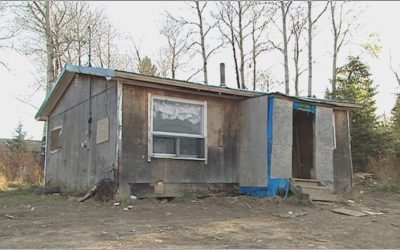Imagine a bureaucrat appears on your front step one day to inform you city hall wants the beachfront property you held in your family for generations—and the city wants it so they can turn it into a tourist resort.
Small problem: You already planned to develop this land into something similar as part of your own retirement plans. Not persuaded, the bureaucrat refers to the needs of the community and their plans. Later, the official notifies you the town would compensate you; politely, you inform them the land is of great value to yourself and your family and that you are not interested.
In time, you are given a notice of expropriation from the municipality. Within years, the municipality ends your retirement dreams.
This happens more often than Canadians might think and little can be done to stop it. For example, under the Manitoba Municipal Act, the municipality is only obligated to engage in negotiations with you to meet the conditions for an expropriation. Since 1997, the Manitoba government joined four other provinces in allowing municipalities to expropriate private land for ‘economic development’ purposes.
By amending its Municipal Act, the province created a loophole for municipalities to take land. As landowners are discovering, this loophole is big enough for several trucks to pass through.
They only need prove they held talks with you. If you’re lucky, you may even have had an independent inquiry officer look at the expropriation. Again, the government is only obligated to “consider” the inquiry officer’s report; it is not binding.
This is not a fictitious scenario. It happened to the Fouillards, a Manitoba family that has battled an expropriation by the Rural Municipality of Ellice for years. As cattle owners, the Fouillards own hundreds of acres of ranch land. Also, an historic Hudson’s Bay trading post resides on their land which is what the municipality wants to develop for local tourism.
Now, after battling Ellice since 2005, the Fouillard family has exhausted their appeals.
Recently, the Fouillards discovered through a Freedom of Information request that the municipalities approached private third parties, like the Manitoba Metis Federation, to help them develop the land. According to Marcel Fouillard, this revelation comes after his family was told the municipality is not seeking outside third party involvement. The family has yet to receive a business plan from the municipality and have no clue what Ellice et al have in mind for the land.
This is not an isolated incident; it occurs all over Canada and the United States. Ontario, Alberta, Saskatchewan and New Brunswick allow municipal expropriation for economic development purposes.
While the changes were made to allow for local job creation, it is apparent the provisions are too broad and prone to abuse. Individual landowners do not have the lawyers and resources municipal governments possess to fight. It’s a case of David versus Goliath—except that in this case, the “Davids” have both hands tied behind their back thanks to unfair legislation.
In the United States, several states have passed strong legislation to curb the practice or eliminate it. For example, Illinois and Idaho passed laws in 2006 prohibiting expropriation for the benefit of third parties.
Prominent jurists, such as U.S. Supreme Court Justice Sandra Day O’Connor have noticed. In a telling dissent, she said: “Any property may now be taken for the benefit of another private party, but the fallout from this decision will not be random. The beneficiaries are likely to be those citizens with disproportionate influence and power in the political process, including large corporations and development firms.”
She added, “The spectre of condemnation hangs over all property…Nothing is to prevent the state from replacing any Motel 6 with a Ritz-Carleton, any home with a shopping mall, or any farm with a factory.”
To protect landowners, provincial legislators should remove this broad power from municipalities. At a minimum, they need basic protections, such as third party reviews or a landowner’s bill of rights. They must clearly lay out what may and may not be expropriated. Otherwise, all landowners have no guarantee their own “arms” might not be the next to be tied up by an arbitrary government.


